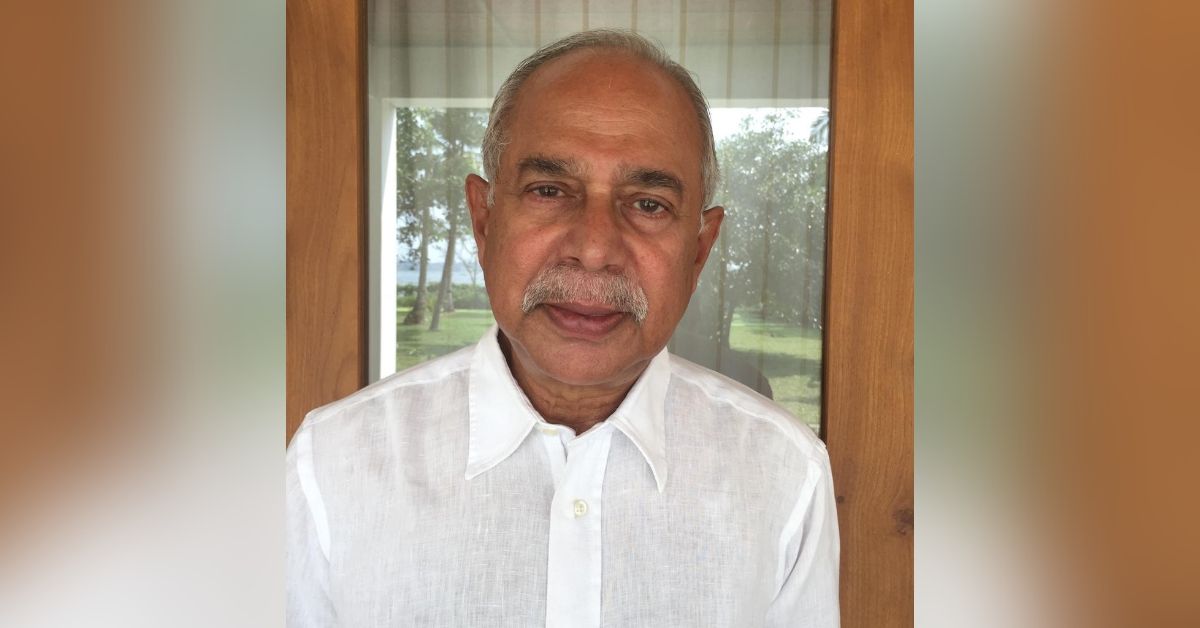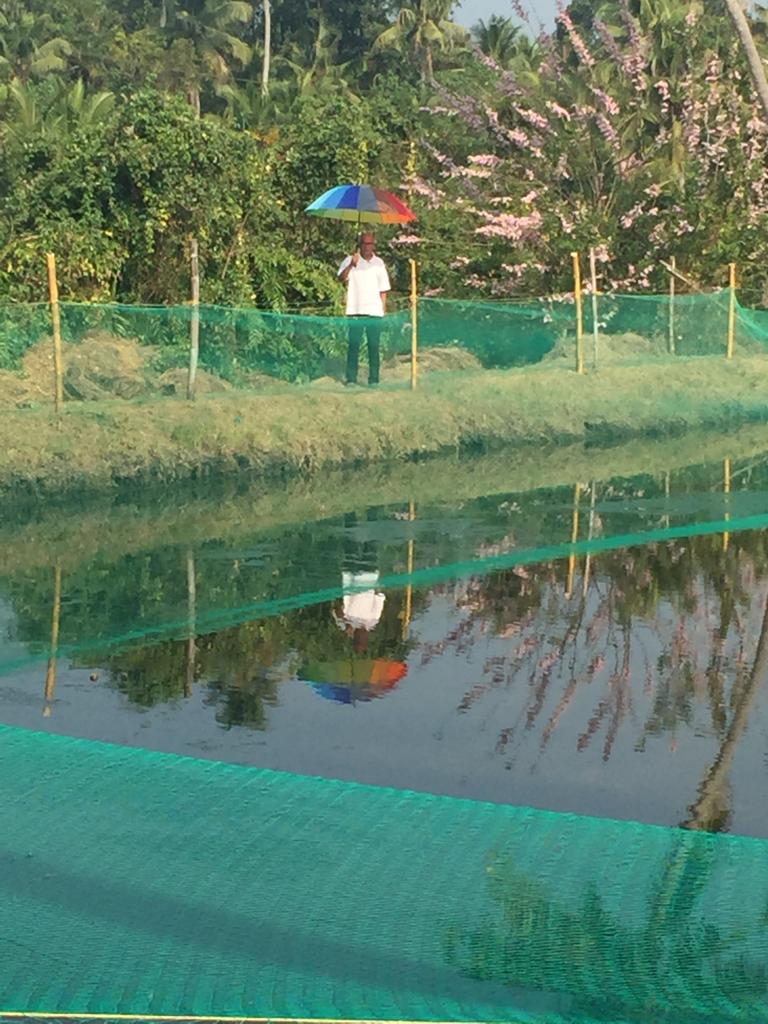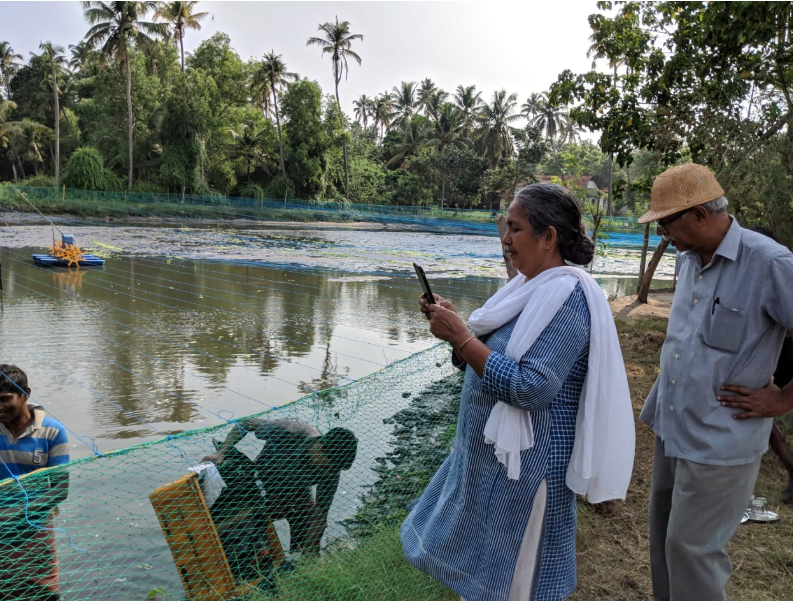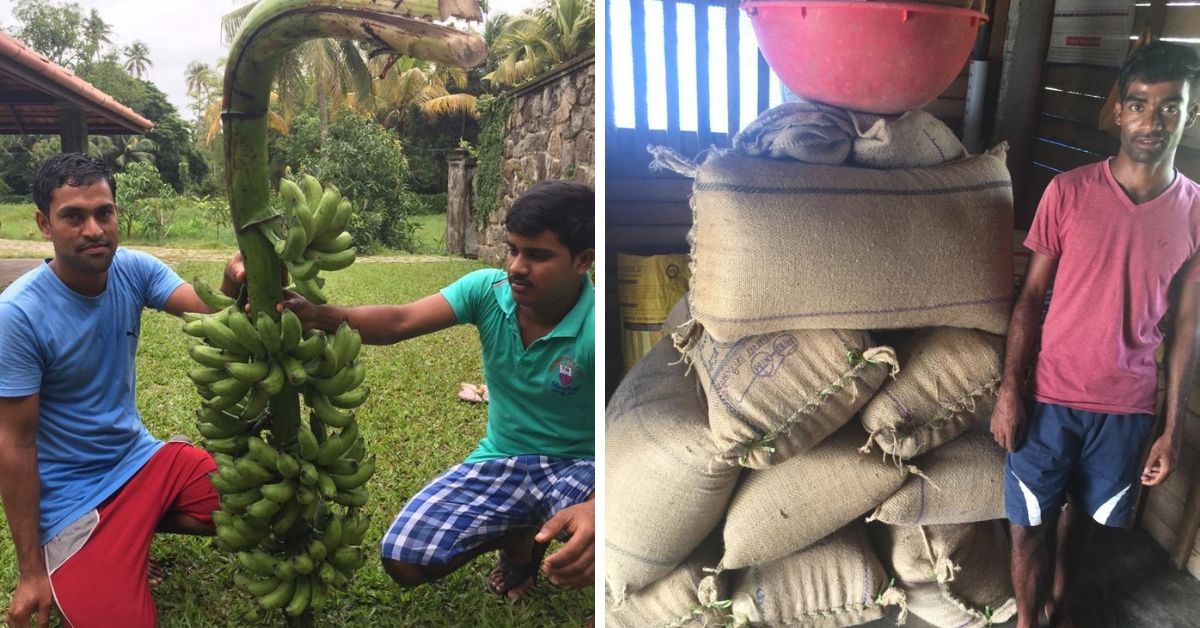74-YO Ex-IPS Officer Turns Organic Farmer, Grows Paddy & Shrimp in Kerala!
“I will never stop serving my nation,” says former R&AW Chief PK Hormis Tharakan, who is showing that it's never too late to live organic! #OrganicFarming #Kerala

‘If you protect the nation, the nation will protect you’, is the philosophy that P K Hormis Tharakan has lived his life by.
Tharakan, a former Chief of Research and Analysis Wing (R&AW) has played many roles in his life. An Indian Police Service officer, Director of the Vigilance and Anti-Corruption Bureau, Chief Advisor of Strategic Affairs and a guest lecturer for International Relations, and through it all, his mantra for life stayed true.
Sow a seed today to grow an eco-friendly and sustainable environment tomorrow. Check out Pepaa Seed Paper Grow Kit at The Better India shop here.
The same motto is now helping Tharakan in his quest to reconnect with his native village Olavaip in Kerala’s Alappuzha district by adopting aquaculture farming and working with the locals.

Back in those days, the harvest was nothing short of a festival where everyone would come together and help each other. After so many years I am getting an opportunity to be a part of the celebrations again, smiles the retired R&AW Chief.
After having served two years as R&AW chief, Tharakan retired in 2007 and took charge as Chief Advisor to Karnataka Governor in Bengaluru. Here, he continued his love for geopolitical relations as a visiting professor at Manipal University, Udupi.
The avid reader ultimately decided to exchange the chaotic city life for a quieter one and shifted to in his village Olavaip with his wife, Molly, with plans to read more books and write.
However, the death of a brother and the need to continue his father’s legacy compelled Tharakan to take up farming.
I hail from an agrarian family, and my father, Kochupappu Tharakan, used to cultivate paddy and coconut on his five-acre farm. After he passed away, there was no one to take care of the farm. At 23, I joined the Indian Police Services, and gradually, my eight brothers also moved out of the village in search of better opportunities.
Later, his younger brother, an international banker, returned to the village a couple of years ago to revive the farming practices. “Just when he started the revival process, he died in 2014. In a way, he inspired me to continue the process, and so I tried my hand at farming.”
Fortunately for him, farming was not an alien concept. All he had to do was polish his rusty knowledge of cultivation. “As a kid, I used to help my father in sowing, ploughing and watering, and now I had only to revise those methods.”

With excitement, commitment and dedication as his motivators, the 74-year-old began re-learning the farming process. He reached out to experts, the local administration and farmers to acquire the right know-how.
While the experts enhanced my technical knowledge, the local administration introduced me to several government schemes that I could use for cost-effective farming. The best inputs came from the villagers as they understand the local weather, land and soil conditions better than anyone, shares the 1968 batch Kerala-cadre IPS officer.
It was the then Deputy Director of the Aquaculture Development Agency (ADA) of Kerala who encouraged Tharakan to use the ‘One Paddy, One Fish’ scheme. Started by the Kerala government, the schemed aimed at promoting shrimp and paddy cultivation.
For Tharakan, the learning has been a “by trial and error” process, and with aid from government agencies. The ADA extended a one-time subsidy to Tharakan in return for his commitment toward paddy cultivation for at least five years. The Marine Products Exports Development Authority came forward to supply tiger-shrimp seeds.
Traditionally, paddy cultivation is done during monsoons and then harvested four months later. For the rest of the year, the low-lying paddy field is kept fallow. Post rains, the prawns naturally come to the fields from the sea, and thus the government pushes the farmer to take up rotational cropping, explains Tharakan.
As per the scheme, this type of farming is a sustainable system that reduces the use of pesticides and fertilisers. However, Tharakan chose to ditch chemical fertilisers altogether as they corrupt the produce and opted for their organic counterparts.

Tharakan’s primary interest is to revive paddy cultivation on his farm. “The government is providing capital relief and seeds for paddy cultivation under the scheme that is funded by the National Adaptation Fund for Climate Change (NABARD). This is a great initiative taken by the government to engage the youth in farming, who otherwise prefer city jobs. I urge people across India to identify similar schemes and start farming,” he says.
When asked about the revenue he is generating from the paddy and shrimp cultivation, Tharakan says, “I refuse to calculate profits as for me the employment generated is the biggest trophy.”
Tharakan has hired three youngsters from Assam who carry out most of the work, but the IPS Officer-turned-farmer visits the farm twice a day and supervises the farming activities. He also recruits 25 local women during the harvest season every year.

Despite his age and insistence from his workers, he cannot stay away from his aquaculture farm, contributing in the daily activities like keeping the pests away, feeding the shrimp and checking the pH value of the water.
Though it has been three years since the ex-IPS officer began farming, he admits that there is still a lot of learning to do to achieve tangible results.
In the first year, just when the shrimp cultivation was ready to harvest, a virus attacked the fields and destroyed the fish overnight. While it was heartbreaking, it was a learning experience for us. The natural fertiliser we used was not strong enough to kill the insects. So the next time we used another organic fertiliser that produced satisfactory results, explains Tharakan.
The first paddy yield was of five tonnes of Pokkali rice, a variety which is saline-resistant and suitable for cultivation in the brackish water. In the second year, the Kerala floods delayed the process, and all the crops were lost to heavy rains.
This year, the farm harvested nearly 1,000 kilos of fish. As for paddy cultivation, the sowing process was started a couple of days ago, and Tharakan is hopeful that the production will not be disappointing this time.
Apart from making an environmental and social impact, farming is also helping Tharakan to reconnect with his village and fellow villagers, something that he always craved to do.
Farming has truly been a rewarding exercise in more ways than one. Agriculture feeds millions, and it is time I contribute in my own way. I will never stop serving my nation.
-Signs off the man who chose to work through his retirement years collaborating with farmers, learning their way of life and finding it more rewarding than a swanky lifestyle in a metropolis.
Also Read: Gurugram Ex-Serviceman Turns Barren Land Into Shrimp Farms, Now Earns in Lakhs!
Featured Image of the farm is representational. Source: Pixabay
All other images are sourced from P K Hormis Tharakan
(Edited by Saiqua Sultan)
Like this story? Or have something to share?
Write to us: [email protected]
Connect with us on Facebook and Twitter.
This story made me
- 97
- 121
- 89
- 167
Tell Us More
We bring stories straight from the heart of India, to inspire millions and create a wave of impact. Our positive movement is growing bigger everyday, and we would love for you to join it.
Please contribute whatever you can, every little penny helps our team in bringing you more stories that support dreams and spread hope.



















